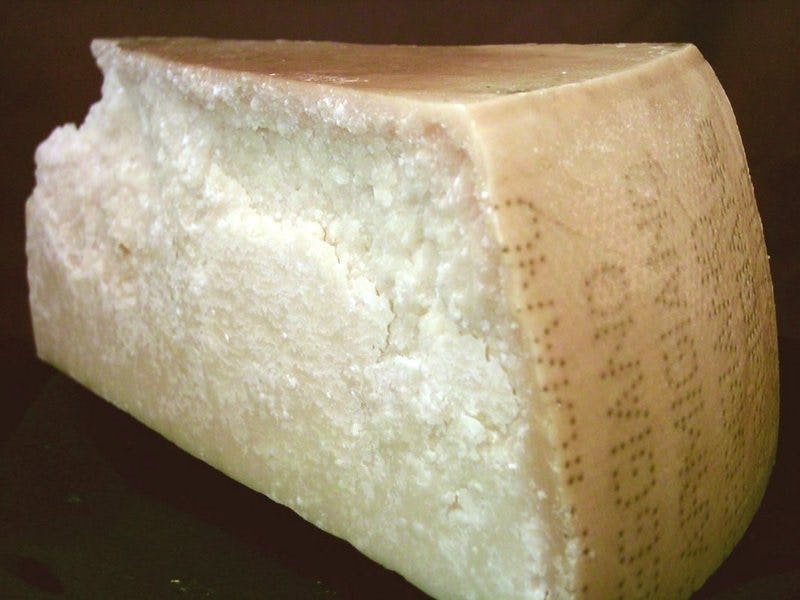FDA: The Woody Notes in Your Parmesan Cheese Come From Actual Wood
The label that promises "100 percent pure" is lying.

Whenever some Bernie Bro starts lecturing you about Wall Street criminals going unpunished as proof that business is above the law, you just remind them that Castle Cheese President Michelle Myrter now faces up to a year in prison and a $100,000 fine for her part in a counterfeit Parmesan scandal. The system works.
Myrter is the most high-profile casualty of an FDA investigation that discovered Castle Cheese is doctoring its “100 percent” real Parmesan with cheap fillers like wood pulp. Far from being an isolated incident, it now appears that the entire cheese industry has been curdling with greed as several high profile brands are pushing phony parm.
Bloomberg News had a variety of store-bought cheeses tested by an independent lab. They found cellulose.
Cellulose is a safe additive, and an acceptable level is 2 percent to 4 percent, according to Dean Sommer, a cheese technologist at the Center for Dairy Research in Madison, Wisconsin. Essential Everyday 100% Grated Parmesan Cheese, from Jewel-Osco, was 8.8 percent cellulose, while Walmart Stores Inc.’s Great Value 100% Grated Parmesan Cheese registered 7.8 percent, according to test results. Whole Foods 365 brand didn’t list cellulose as an ingredient on the label, but still tested at 0.3 percent. Kraft had 3.8 percent.
And these numbers were even worse:
According to the FDA’s report on Castle, obtained through the Freedom of Information Act, “no Parmesan cheese was used to manufacture” the Market Pantry brand 100% grated Parmesan Cheese, sold at Target Corp. stores, and Always Save Grated Parmesan Cheese and Best Choice 100% Grated Parmesan Cheese, sold by Associated Wholesale Grocers Inc., which along with its subsidiaries supplies 3,400 retail stores in 30 states. Instead, there was a mixture of Swiss, mozzarella, white cheddar and cellulose, according to the FDA.
Publicly shamed spokesman from Jewel-Osco, Whole Foods, Kraft Heinz, and Walmart say their companies are now investigating the matter, even as they questioned the reliability of Bloomberg’s single test sample.
Aside from the impotent rage you might feel knowing that some companies will happily treat you like a termite and charge you for the privilege, consuming cellulose won’t hurt you. It might actually be healthy, considering that cellulose is a form of fiber.
Such bait-and-switches are becoming familiar territory to consumers with scandals like the 2013 revelation that British supermarkets were selling burgers made of horse, or Aquafina’s ongoing public relations struggle to convince people that its product, sourced from the same origins as your tap water, is sufficiently filtered to warrant the price tag.